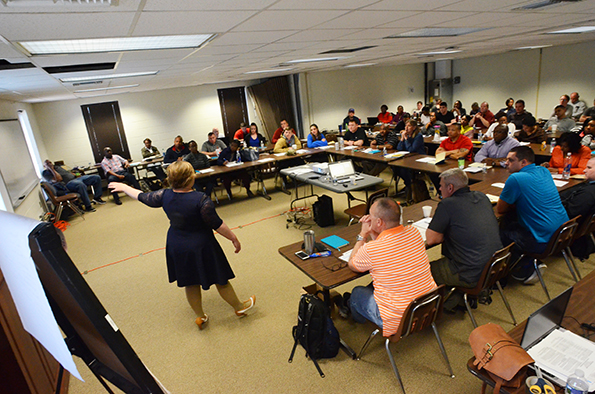Protecting TANF Recipients
Helping families in need to get work training without losing assistance.
Economic Justice – Policy Reform
OVERVIEW
Temporary Assistance for Needy Families (TANF) is a public assistance program which provides a temporary, modest cash grant and child care support to low-income families. In order to receive the grant, many recipients must participate in WorkFirst, a state program which provides training and work-related activities to enable families to become better reconnected with work. Under Washington law, individuals could only count 12 months of vocational education towards their work activity requirements, despite many vocational education programs requiring 18-24 months to complete.
In 2017, Columbia Legal Services advocated to expand vocational educational opportunities for TANF recipients and played a role in a successful effort to pass Senate Bill 5347. This bill allows TANF WorkFirst participants to count up to 24 months of vocational education training towards their work requirements. This legislation will allow parents and individuals to see their vocational education programs through to completion, increasing financial stability for families and helping them access employment.
“This bill marks an important shift in focus for WorkFirst toward building a viable career pathway that interrupts intergeneration poverty,” said Michael Althauser, Staff Attorney at Columbia Legal Services. “Supporting training to help end the skills gap for in-demand jobs creates a stronger labor force – and stronger families at the same time.” Althauser, Directing Attorney Ann LoGerfo, and Policy Director Antonio Ginatta worked on this effort.
Legislation will expand educational opportunities for low-income parents

Today Washington Governor Jay Inslee signed legislation improving vocational education pathways for parents receiving Temporary Assistance for Needy Families. The new law removes barriers that prevent parents from completing a degree or certificate program that takes more than 12 months to complete, allowing them to continue their education with an eye toward graduation.
Temporary Assistance for Needy Families (TANF) provides a modest cash grant and child care support to parents with children living on very low incomes. To receive the grant, parents participate in WorkFirst, a state program which provides training opportunities to become reconnected with work. Some parents pursue courses in high-demand fields at the state’s community and technical colleges, but current law limits this type of training to 12 months as part of WorkFirst.
The new legislation, sponsored by Sen. Maureen Walsh (R -Walla Walla), would allow up to 24 months of vocational education training for WorkFirst participants. Since many technical degree and certificate programs take 18-24 months to complete, the policy change will increase the opportunity for parents to see their program through to completion.
“Allowing for up to two years of vocational education while on TANF will help parents be better equipped to raise their children,” said Kelly Curley of Everett, a mother and student who currently receives TANF.
Research by the Washington State Department of Social and Human Services shows that parents on TANF who obtain a voc-ed credential achieve notably higher rates of employment and earn more than $6,000 per year than those who do not.
“While WorkFirst aims to quickly reconnect parents to work, it is also important participants exit on a path to stable footing. This legislation is an important step toward establishing pathways off TANF that result in greater financial stability for families and better outcomes for kids,” said David Hlebain, Basic Needs Campaign Coordinator at Statewide Poverty Action Network.
“This bill marks an important shift in focus for WorkFirst toward building a viable career pathway that interrupts intergeneration poverty,” said Michael Althauser, Staff Attorney at Columbia Legal Services. “Supporting training to help end the skills gap for in-demand jobs creates a stronger labor force – and stronger families at the same time.”
The new legislation takes a two-generation approach to reducing poverty, recognizing that kids do better when their parents do better. Supporting parents in accessing advanced educational and employment levels through vocational education not only enhances the well-being of their children but also decreases the likelihood their children will remain in poverty as adults.
